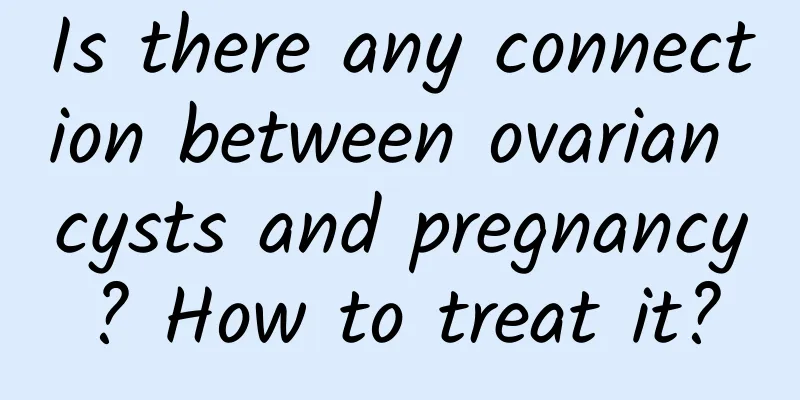Recognize the "clues" of ovarian cysts

|
Yuanyuan's company has been promoting a "weight loss trend" recently, so Yuanyuan also joined in the fun and started a weight loss campaign. However, she has been eating significantly less than usual recently, and she also insists on climbing mountains every weekend for exercise. However, not only has her weight not dropped, but her waistline has increased significantly. When she meets her friends, they all say that she has gained weight. Moreover, since she started losing weight, Yuanyuan often feels a dull pain in her abdomen. After going to the hospital for a checkup, she was diagnosed with ovarian cysts, which shocked Yuanyuan. Recognize the "clues" of ovarian cysts Ovarian cysts are common in white-collar women around 30 years old. Since the ovaries are relatively small organs in the human body and are hidden deep in the pelvic cavity, early cysts are difficult to detect. As the cysts grow larger, lower abdominal discomfort and other feelings will gradually appear. Therefore, it is particularly important to recognize the "clues" of ovarian cysts. Lower abdominal pain: When you stand up after exercise or sitting still, you may suddenly feel some pain in your lower abdomen. At this time, you should suspect ovarian cysts, because the fluid accumulated in the cysts will cause the ovaries to sag under the action of gravity, and a feeling of heaviness and pain will occur when you exercise. Abdominal distension: During the weight loss process, not only does the weight not decrease, but the waist circumference becomes thicker and the abdomen becomes swollen. At this time, ovarian cysts should be suspected, because the thickening of the waist circumference and the swelling of the abdomen are not caused by obesity or pregnancy, but are the manifestation of the gradual growth of the cyst. Frequent urination or difficulty urinating: When diaper rash or difficulty urinating occurs, you should actively go to the hospital for examination, because larger cysts squeezing the bladder can cause frequent urination or difficulty urinating. |
<<: Postpartum chronic pelvic inflammatory disease must be prevented
>>: Long-term persistent low back pain should alert you to adnexitis
Recommend
Note: Chronic adnexitis is very harmful to women
The symptoms of female adnexitis refer to disease...
Study confirms sugary drinks are a major cause of childhood obesity
New York City, USA, recently announced that it wi...
Analysis of common symptoms of severe cervical erosion
If mild cervical erosion is not treated in time, ...
Common causes of dysmenorrhea
Dysmenorrhea is a common gynecological disease in...
Learn more about the dangers of pelvic inflammatory disease
I believe many women know that pelvic inflammator...
Eat too much for dinner, be careful not to expand your waistline! Professor Liu Zhenfang: Watch out for these three dinner landmine combinations
The busier you are at work, the more you want to ...
Postoperative care for patients with ovarian cysts
If there is a benign tumor in the ovary, it is an...
Get rid of the three layers of belly fat! 7 reasons you should know
Have you ever had the embarrassing situation of h...
Is female cervical erosion easy to treat? Precautions for treating female cervical erosion
Is cervical erosion easy to treat? This question ...
What are the symptoms of cervical erosion?
Cervical erosion is a woman's "good frie...
Specific causes of cervical precancerous lesions
There are many reasons for cervical precancerous ...
What are the best ways to detect bacterial vaginosis?
What are the items to be checked for bacterial va...
Can I get pregnant with ovarian cysts? What are the symptoms?
Can I get pregnant with ovarian cysts? What are t...
What is the cause of pelvic inflammatory disease?
Nowadays, there are many types of gynecological d...
How much does it cost to do a painless abortion?
What to do if you accidentally get pregnant? Many...









